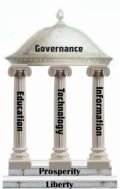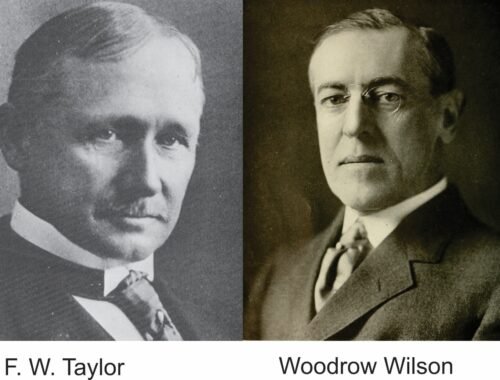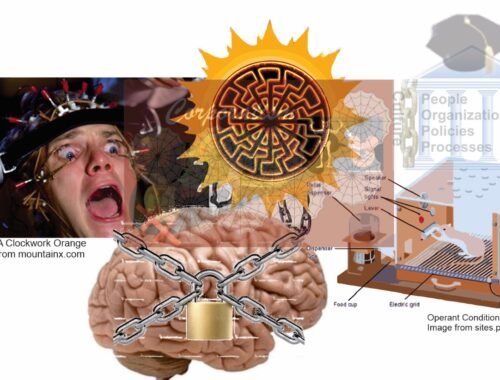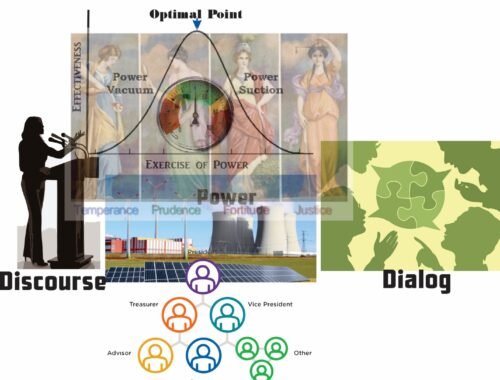
Operant Conditioning, Path Dependency and Societal Revolution, Part 2
As in Part 1 of this series, first a disclaimer. I am of the philosophical line in the discussion below. I think we should teach and be models of virtue because it is right and good and not because we fear punishment or hope for reward for following a prescribed set of rules for behavior. But I also understand the value of governmental rules and punishments for those that are still “becoming”. As Madison notes in Federalist Paper Number 51, that is most people. Therefore, we need to balance virtue and operant conditioning in an effective system that allows liberty and prosperity to flourish. From an organizational perspective, this is the balance between disciplined execution and a fertile matrix of support for entrepreneurial efforts.
Religion and philosophy are historically the two dominate sources of behavior control. Organized government started a rise after the Thirty Years’ War and the Treaty of Westphalia introduced the concept of the nation-state. The difference between philosophy and the other two is that philosophy tries to teach and encourage virtue as an end in itself and the ideal source of conduct. The other two use forms of Operant Conditioning—reward and punishment to shape behavior. We can go back to at least the time of Socrates to see the tension between philosophy, religion and government.
When the West curtailed church power after the Thirty Years’ War, it started down the path of reduced religious control over behavior. Yet it did not strengthen and encourage the growth of philosophy. At first, the issue was hardly noticeable, but as religion declined, especially after the 1960s, its “positive” control over behavior weakened, with no growth in the philosophical support for virtue.
Government stepped into this vacuum and increasingly exercised its operant control power through classrooms, laws, and increasing government regulation and bureaucratic control. At first, these changes were benign and reinforced the state’s notion of orderly behavior. But then a funny thing happened in the 1960s. The anarchists and others realized that if they took control of the government, it was no longer their enemy, but their tool. The Great Society Power-shift gave the government the power and the motive to create a new “Dark Philosophy”.
The figure illustrates this process. Starting with philosophy, the mavens of social change erect a membrane to obscure and filter philosophy to meet their own objectives. The Nazi use of philosophers such as Nietzsche and Hegel composers such as Wagner, and Geopolitical philosophers such as Haushofer are a good example. They construct a membrane to obscure what they do not want and pass through what they want. This membrane varies by person and concept according to their biases and cognitive styles and capabilities. Kozhevnikov (Kozhevnikov, 2007, p. 477) wrote, “Cognitive styles have an adaptive function: They mediate the relation between an individual and his or her environment.” This is the natural membrane before the Dark Philosophers practice their magic on it.
The Dark Philosophers control the membrane to all it to filter through only the concepts they find useful, regardless of whether the concepts are improperly cited or important to the original philosophical concept. They understand how to use operant conditioning, expectation management, and education to manage and adapt societal and personal filters to accomplish their objectives. They set trigger events to create new path dependencies that establish desired behaviors.
This is not completely new. Dark Philosophers have been around for as long as societies existed. The difference today is three-fold:
- Social media amplifies, extends, and augments their effectiveness.
- They now shape and augment government policy and use the government’s power to achieve their objectives.
- Some religions now embrace and preach the Dark Philosophers’ gospel.
This gospel preaches:
- Government is the source of all power and has the responsibility for citizen welfare.
- Enforced equality is a primary means to achieve citizen welfare.
- Previously successful groups need to be shackled now to provide room for other groups to succeed.
From this gospel, we can see the connections to religion. Using social cohesion and welfare helping the poor resonate with some religious themes.
But it is really about power.
This process applies to organizations as it is to states and societies. Some names change and culture replaces religion and philosophy, but the essence of the process and objectives are the same. This can get even more amplified when corporations work hand-glove with government.
This dark gospel stands de Tocqueville’s observation of the strength of the American republic. In Democracy in America, he noted that civic organizations rather than the nobility provide many of the services to the citizens. Are his observations still relevant nearly two centuries later?
Reference:
Kozhevnikov, M. (2007). Cognitive Styles in the Context of Modern Psychology: Toward an Integrated Framework of Cognitive Style. Psychological Bulletin, 133(3), 464–481. https://doi.org/10.1037/0033-2909.133.3.464





